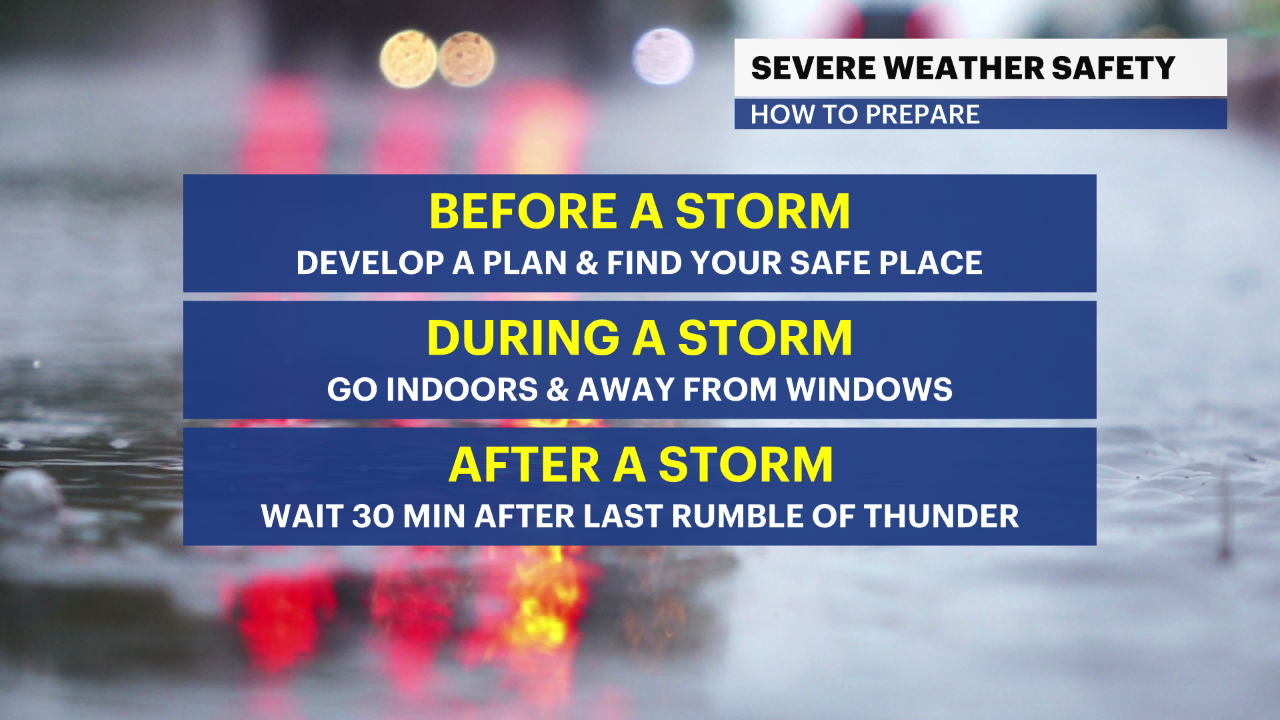More Stories
As the National Weather Service in Upton continues Severe Weather Awareness Week, it is important to know what to do before, during and after a storm.
Wednesday's focus is safety and preparedness, including what to do when a severe thunderstorm or tornado warning is issued.

Do not wait until a severe storm strikes to be prepared — develop a plan now and be ready in the event of a storm. In that plan, find your safe place at home. The best shelters are either in the most interior room or the basement. They are farthest away from windows, which can shatter from flying debris.
If severe storms are forecast in the area, remember to charge all your devices, including smartphones, laptops, and weather radios. Make sure you have essentials like flashlights and perishable foods in the event that the power goes out for several days.
It is crucial to turn on emergency alerts on your smartphone, as well as notifications from News 12, to have the latest weather alerts sent straight to your smartphone in real time. The easiest way to check, on both Apple and Android devices, is by going into the Settings app and clicking on the Notifications tab.
Also make sure to check the radar – on the News 12 app or on air with the Storm Watch Team. Always being updated on the forecast on your phone or TV is important to planning out the day ahead.
Once a storm approaches and a warning is issued, make sure to follow your severe weather plan and go to your safe place. If you are not home and are outdoors, head indoors immediately and stay away from windows. If you are in a vehicle, avoid stopping underneath an overpass. Wind funnels through that tight space and can damage your vehicle.

Even though the storm may be over, it is best to stay indoors and in your safe place for another half-hour, as lightning can still strike after the heaviest rain passes. If you can hear thunder, 30 minutes after the last rumble of thunder is a good rule of thumb before resuming daily activities.
Speaking of thunder and lightning, this week's Storm Watch Challenge question asks which part of a thunderstorm can you see/hear first -- lightning, thunder or both?
Speaking of thunder and lightning, this week's Storm Watch Challenge question asks which part of a thunderstorm can you see/hear first -- lightning, thunder or both?

The answer is lightning, as light travels faster than sound.
Following these tips is key to being safe and prepared for severe weather all season long. The News 12 Storm Watch Team has you covered with hyperlocal Storm Watch coverage with the tri-state area's largest team of meteorologists.
More from News 12
1:19

Clouds may obscure March 3 ‘Blood Moon’ eclipse on East Coast
1:59

'They want to be with their family.' Plow drivers prepare for short turnaround

Power center: Electric outage resources
0:23

Gov. Lamont to activate Severe Cold Weather Protocol as snowstorm bears down on Connecticut
2:06

Bridgeport's emergency parking ban in effect ahead of winter storm
